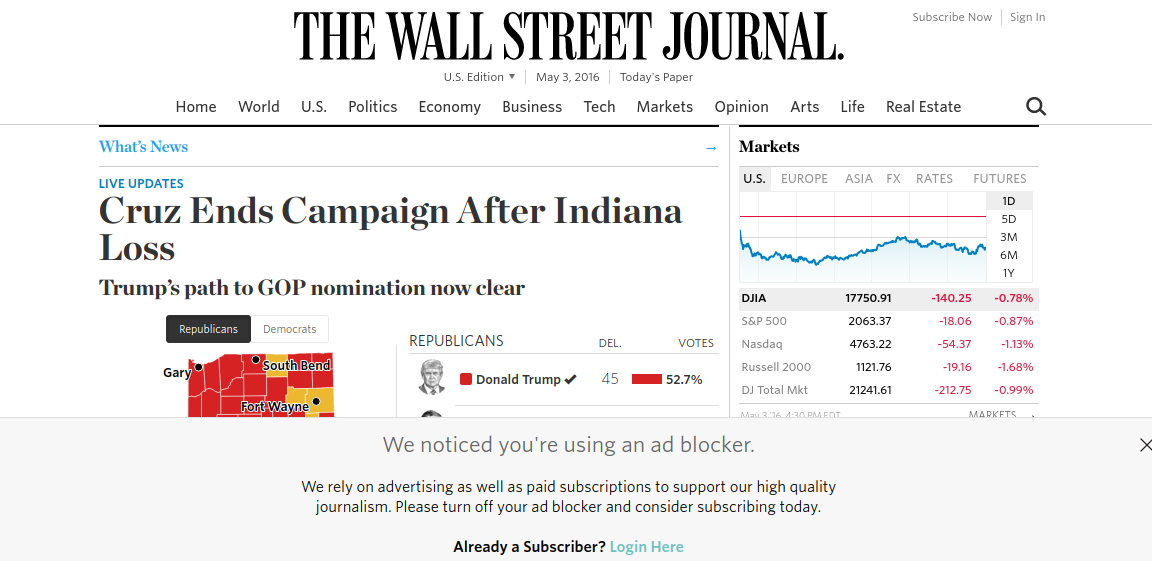Secure your place at the Digiday Publishing Summit in Vail, March 23-25

The Wall Street Journal has become the latest big-name publisher to ask people to turn off their ad blockers. Visitors to the financial news publisher’s site are being greeted with a polite message asking them to turn off their ad blockers and to subscribe to the publication.

A rep for the Journal said it’s showing the messages to some WSJ.com readers in the U.S. and Europe who have installed ad blockers. It doesn’t block the Journal’s free-access articles.
The move is interesting since the Journal is blocking articles that already require a subscription, making the case that not only should readers pay $200 a year for access but also take the ads (and tracking) that comes with the package. In the Journal’s case, the messages don’t appear to people unless they’re not logged in, though, either as a subscriber or through social media, which would seem to minimize that risk. It’s not known if the Journal plans to up the ante and prevent ad blockers from reading the site altogether.
The WSJ is testing a few versions of the messages. In one, the message appears as a banner across the bottom of the page.

The Journal message is similar to one the The New York Times just began testing in March to combat ad blocking. A number of other publishers have asked readers, with varying degrees of forcefulness, to turn off their ad blockers. They’re alarmed by the rapid adoption of ad blocking software that reduces the number of eyeballs they can sell advertising against.
The tactics have been met with varying degrees of success, and there’s no agreement on what the right approach is; some say the hard line only escalates bad feelings with readers, who understandably are using ad blockers to avoid seeing annoying and intrusive ads. Others say the soft approach doesn’t work because it can be a hassle for readers to disable their ad blocking software (some of whom may not even know it’s installed in the first place).
The Journal has been clamping down on freeloaders in other ways recently. In January, it tested closing the Google loophole that let people copy and paste a Journal article link into Google to circumvent the Journal’s paywall.
More in Media

The case for and against publisher content marketplaces
The debate isn’t whether publishers want marketplaces. It’s whether the economics support them.

Urban Outfitters shifts its influencer strategy from reach to participation
Me@UO is Urban Outfitters’ new creator program leverage micro-creators with smaller, engaged communities that are passionate about the brand.

Media Briefing: Without transparency, publishers can’t tell if Google’s Preferred Sources feature benefits them
Six months in, Google’s Preferred Sources promises loyalty-driven visibility, but leaves publishers guessing at the traffic impact.





